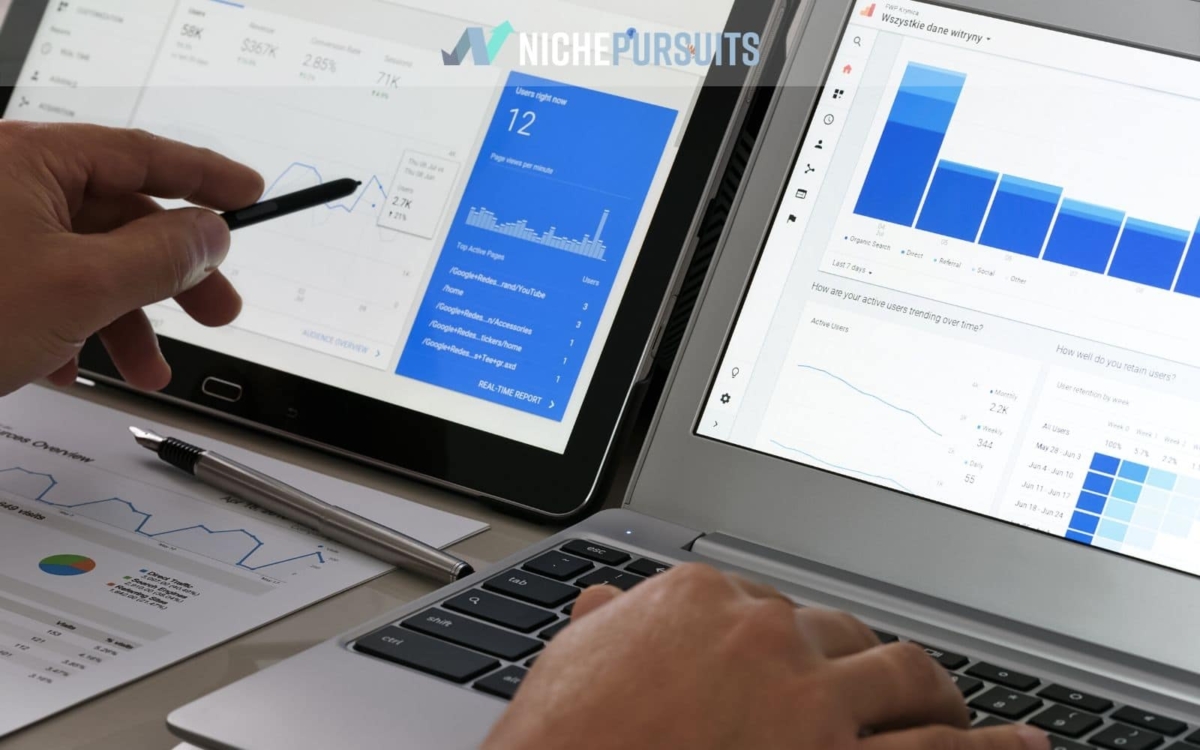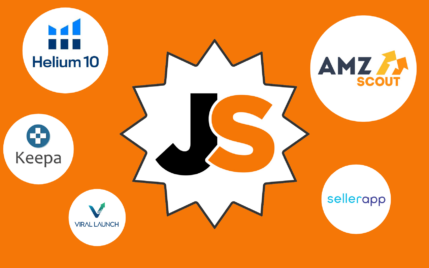How Important is Average Time on Page in Google Analytics?

When you buy something through one of the links on our site, we may earn an affiliate commission.
If you were to create your own Google algorithm for ranking sites, you might come up with all kinds of reasons to rank sites higher than others. So, imagine for a day that you had the power to create your own ranking formula…what sort of factors would you include?
I would think that average time on page in Google Analytics would be important.
As I personally think of this question, its seems intuitive that one factor to include in my formula would be to rank sites higher if people spent a lot of time on them. Doesn't that seem to make sense?
If people are spending a long time on your website, that must mean that they are reading, learning, or otherwise enjoying the content that is there. So, I personally believe that the metric of time on site is a good way to know if people find the content on your site valuable – and hence should be ranked higher.
But the real question is: How important is time on site (Really) for ranking in Google? Does Google actually use this metric currently to rank sites higher or lower?
Bounce Rate vs. Time on Site
To be completely forthright, Google has never stated whether or not they use Visitor Time (or average time on site) as a ranking factor. But Matt Cutts has explicitly said that they do NOT use Bounce rate as a ranking factor.
But bounce rate is not the same thing as the amount of time a visitor spends on your site. Bounce rate is the percentage of visitors that leave your site after only viewing one page. Notice that time is not a factor in bounce rate at all.
So, a visitor could come to your site and spend 3 hours reading just one page, but if they click back to Google without viewing a second page on your site, this is considered a bounce. So, while they've explicitly said that bounce rate is not used, there is no official word on average visitor duration.
However, as others have said, controlling your bounce rate is still very important.
My Take on the Importance of Average Time on Page
I personally think that its very important to keep visitors on your site for a long time and likely is part of the Google ranking algorithm. But I don't think Google is spying on your Google Analytics (but you may be curious which kinds of hits does Google Analytics track). (I know that other feel differently about this).
Most likely they simply look at how long it takes someone to come back to Google after they click through to your site. This is referred to as “Dwell Time”, according to a few SEOs. Dwell time is basically how long it takes a user to come back to Google after looking at a site. And they don't need to see your “Analytics” to get this number.
If users are quickly coming back to Google every time they land on your website, Google might start thinking that your site isn't worth ranking.
What is the Average Time on Site in Google Analytics?

I can give you some stats from my own sites, but the average visitor duration is going to be very different depending on the type, quality, and subject matter of the site you own.
- The “average visit duration” for my site NichePursuits.com, according to Google Analytics, is 3 minutes and 58 seconds. This is a long time for an average visit duration.
- My survival knife site (from my public niche site project here) has an average visit duration of 2 minutes and 36 seconds. This is also very good for a small niche site.
- I think anything over 2 minutes is actually very good for a niche site.
- Between 45 seconds to 2 minutes is perhaps average for a niche site.
- Under 30 seconds is really bad.
Here's another example of one of my sites showing average time on page in Google Analytics:

These are just some general numbers I put together looking over a few of my own niche sites that I own.
Closing Thoughts
While it has never been stated explicitly by Google that they use Time on site to rank sites, I personally believe that this does come into play for SEO purposes. Google knows how quickly users are coming back to Google after visiting your site, and can use that data.
You can also now see a couple of my examples and compare your average time on page in Google Analytics with your websites.
So, in addition to the many factors that I've discussed for how to rank in Google, you should certainly do what you can to increase the amount of time visitors are spending on your site.
Do you have something to add to the discussion? I'd love to hear your comments or questions below!
Want to learn step-by-step how I built my Niche Site Empire up to a full-time income?
Yes! I Love to Learn
Learn How I Built My Niche Site Empire to a Full-time Income
- How to Pick the Right Keywords at the START, and avoid the losers
- How to Scale and Outsource 90% of the Work, Allowing Your Empire to GROW Without You
- How to Build a Site That Gets REAL TRAFFIC FROM GOOGLE (every. single. day.)
- Subscribe to the Niche Pursuits Newsletter delivered with value 3X per week
My top recommendations

















36 Comments
Conversation
I have been wondering the same thing myself, Spencer.
I think that if it doesn’t matter now, then it will eventually… I feel the same way about bounce rate, regardless of what Matt Cutts says.
That’s why I think that your product chart (even though it doesn’t link to Amazon so much anymore) is still a good thing since it leads people to other areas of your site, thereby lowering your bounce.
Brad:
I agree that whether or not it matters 100% right now, its an excellent metric to be concerned with. (And yes, going strictly off Matt Cutts words may not always be the best).
And that’s also exactly why I created the chart – its creates additional value to the users – which turns into longer times on the site.
I quite agree with you on this one Spencer,
Google might not openly state that they’re also paying attention to sites bounce rate in order to rank it but, just as you said here, i think its very obvious.
I’ve heard and read a lot about this same subject even, i think Neil Petal has also created an infographic on it before.
The time visitors spends on your site, the Google sees it as an authority that is worth ranking.
And, i think i will also include visitors time on sites as one of the factors to rank a site if happen to have the opportunity.
Thanks for sharing, Mr Haw
Very nice article.
An average reader spends around 5 minutes in my blog and according to your article, it’s a very good figure 😀
Thanks for the article and keep posting 😀
Bounce rate isn’t a good determining factor because simple content takes less time to digest, yet sites would be penalized for making their content easy to get through or for having content that doesn’t take a long time to digest. Sometimes people have a question they are searching for that only requires a second to find the answer.
If I want to find the times for the next 3 Giant’s games I might only spend 4 seconds on the page, but that doesn’t mean I didn’t find exactly what I need, the opposite in fact.
For eCommerce sites the goal is to get costumers through the purchase process as quick as possible yet they’d possible get penalized for being too fast.
Dwell Time on the other hand is a great way to determine search results and I hope Google uses it. Anyone who clicks off to Google and then returns back to Google in short order didn’t find what they needed, or need more information they couldn’t find on the site they just visited. In either case the site should rank lower for that term.
Great points, Tyler. I agree.
Hi Spencer. Nice post, again. Time on site makes sense as a ranking factor. I personally like to use ave page views as my key metric for assessing how well my site is performing in terms of visitor engagement.
My theory is that if someone is clicking through a few pages then they are obviously engaged in the content and keen to find out more and it is an indication that the initial impression the site gives is welcoming (people don’t click through multiple pages without liking what they see). Whereas with time on site, I know I tend to be surfing a number of sites at any one time. For example, I’ve been on this site for over 10 minutes now as I had a phone call so it blows out the data…
In an ideal world Google would probably factor both into their algo and have a way to weed out the extremes. Anyway, there’s no doubt that creating quality content is a key to a successful site. Google theoretically uses it as a factor to rank sites and visitors are looking for it from the sites they click through to…
Loving the public niche site project. Great stuff.
Spencer, thanks for sharing your stats. User engagement metrics are all definitely important and with Google Chrome becoming the most popular web browser Google is able to collect more information about engagement than ever before.
Your stats line up almost exactly as my stats do:
– My case study website – 2:39
– My online income blog – 3:40
What other engagement metrics do you monitor?
I do also like to look at pages/visit.
My average time on site is just over 90 seconds and I am averaging about 4.2 page views per visitor. My bounce rate is 1.3%
I know I can beef up my time on site and I think my bounce rate is awesome. One thing that I have difficulty understanding is when I see a visitor going thru 4 pages and my duration of the visit is listed as 4 second or something like that. I will have a lot of 2 page visits with a 0:00 duration time or 2 page visits with a duration of 1 second.
Can anyone articulate what is happening with these?
Hey Spencer,
Great points made and opened nice discussion here.
For me, answering visitor’s query and providing them solution is a definition of quality content.
If Search Engines have to evaluate that, Dwell time is nearer factor than time on site I think.
Reason: Most of the times, type of contents also delineates time on site. For example, visual contents would obviously have higher engaging time but that doesn’t exactly mean that content is appealing. (I have a cricket videos site using youtube videos and it has 6mins+ avg. time and 4 pageviews per visitor, but I am just entertaining people. But if Google takes such factor in consideration to determine quality, it would be wrong I think)
Dwell time is better because it is indication of the fact that whether or not user got answer/solution or not.
So in my search engine, dwell time would weigh higher than time on site/bounce rate, but all of them are quite intruding factors. So cannot ignore any, I feel. Their weight must vary accordingly.
This is an opinion of newbie, so criticism is invited.
Thanks,
Priyank, Your Indian Fan.
I agree that Dwell Time is most likely what Google uses.
Spencer, this question is a bit off track, but I hope you can shed some light on the difference between these 2 methods. I noticed these 2 different approaches while doing keyword research.
Method 1: find a keyword, then build a niche site based on that keyword phrase and other pages reinforce this keyword phrase. This is the type of approach you are using in the survival knife site.
Method 2: another style that I noticed that gets into the top 10 were those where you have 1 site that makes several individual pages of low competition keywords. And try to make each of these pages rank. Some of these include something like toptenreviews (this is one of the bigger ones), I’ve noticed a few smaller ones like bestchoicereviews (dot) org for example. And they seem to rank some individual pages too.
What are the main differences between the two methods and which one do you think is more advantageous?
Yes, your method 2 is also very popular. Think of ehow.com or ezinearticles.com or many other sites; that is what they are doing. Each page is a completely different topic. The advantage of a “niche” site is that the links you receive tend to be more relevant (because all your content is on the same topic). And you can better serve your visitors by providing more in depth answers. You can also build an audience better.
However, as mentioned, other companies have been successful with “method 2”.
I acquiesce to the presumption that those factors matter, but I don’t think Google religiously utilizes a certain time to distinguish the quality of sites in it’s index across all keywords. Rather, I think the time on site that represents the average or acceptable level of engagement for a site is relative to that of other sites ranking for the same keyword. What do you think?
Awesome overview, Spencer.
I actually just published a list of Google’s 200 Ranking Factors and was a bit reluctant to include Time on Site on the list.
I ended up lumping it together under “Site Usability” because I couldn’t find any solid data on it.
Although I don’t think Google uses Google Analytics data (as you mentioned in your post), they have confirmed that they use Chrome browser and Google Toolbar data…both of which could measure bounce rate, page views and time on site.
Awesome Spencer… right now I have been wondering if average time and bounce rate could affect my rankings and you have given positive insights – very interesting.
Although I’m a bit confused by my bounce rate … see, Google compute it a certain way via Analytics, but others (as glicky for example) compute it an other way… http://clicky.com/blog/214 … I actually like more Clicky’s way of computing it cause it makes morer sense.
What do you think?
Nicolas
I haven’t compared how clicky and Google calculate it.
Doesn’t really matter how clicky or anyone else computes it, the big G is the one who is in charge of the SE rankings
Spencer,
Great post. I think TOS should be important too… but I think Dwell time should be the #1 ranking factor. Bounce rate can be skewed based on call to action being fulfilled(someone picking up and dialing, or getting an address) and then leaving the site. TOS can also be skewed by people who use multiple tabs and just open things in a new tab but don’t get to it for about 20 minutes (which I actually just did with this post).
I think TOS will also vary from industry to industry, but for most niches, your numbers are right on target.
Great work as usual.
Adam
congrat spencer, your public site reach the top spot!
Nice Information, after reading your articel i just go back to my analytics account it has average 3 minutes : 49 seconds. So my website still in good points base on your experience. Thanks you.
Hi Spencer, thanks for the great post, but I wonder…
If you say time on site is an important parameter for the big G, and they count it as instances between the visit and revisit of their search tool, rather than by the bounce rate, what do you think about the case of when the bounce rates are high but that’s because the post recommends on another website ( as in the case of many affiliate sites)? So on one hand we got high bounce rates but on the other the bounce is to a third site rather than to Google.. Is there value here to the reader ( in Google’s eyes)?
As mentioned, I don’t think bounce rate is very important. The “Dwell time” is more important; meaning how long it takes the user to come back to Google. So, if the user isn’t going back to Google right away, I don’t think it matters if you refer them to a 3rd party site.
So do you think when people come to our site say it 5 minutes reading article, then re-type google.com and make same keyword searching it bad to our site? Thanks Spencer
No, I think 5 minutes is pretty good.
I think tracking time spent on site not based on Google Analytics but rather on “Google search to website to Google search” can give wrong indications. E.g. let’s say the searcher opens up a search result from SERP in a new tab, then goes back to Google search to open the next search result. The purpose being to open up all 10 or so search results. The searcher only then proceeds to each page to read it. In Google eyes, it would seem that time on site is only 5-7 secs or so. This is not really the case as we see the actually reading/browsing starts afterwards only. But Google wouldn’t know that unless each site itself has Google Analytics installed.
what if the user clicks open link in a new tab. What would google do then?
I think analytics still counting your page average time. Try search your website on google.com, when your site visible in search result then you can open new tab and enter your url manualy, then back to google results – its become purple (ur website)
Hi guys, Not sure how this impacts (if at all) on anything and it maybe slightly off topic but I had quite a high bounce rate on one of my sites – 70-80%. This was also much higher than I would have expected when looking at keywords that people were using. I tested site speed etc which was all okay. However since I installed WP super cache plugin 3 weeks ago my bounce rate is lower than 5%. Whilst I would love to believe that now people are staying on my site for longer and reading more this jump and bounce rate seems far too good to believe. I’ve yet to try dig deeper on why this plugin affected my bounce rate like this? Perhaps it has something to do with how the plugin loads the page(s) and makes google think that the user loaded / visited the php page then the cached html page? Either way if google do start to focus more on the bounce rate in algorithms then this may be a nice little bonus?
Interesting. I do suspect it has something to do with how the pages are cached. Your suspicion may be correct, but I haven’t really looked into this. Overall, its not a bad thing…but Google doesn’t take bounce rate into consideration currently.
I have an old website that was ranking number 1 for its main keyword, and it had, for months at a time, a 0% bounce rate. Then a new site came along with only one long page and I figured it must have a long dwell time. It overtook my site, which dropped to number 2. Up to now it’s still number one and mine number 2.
Great article Spencer, I agree that Google will most likely incorporate time as a key metric in the future. This would also benefit websites that are well organized and make it easy for users to navigate and find useful information throughout their site.
I wonder which tracking software you use Spencer. Google Analytics only allows 50 profiles (100 if you manage to convince them to increase it) so do you use Analytics? or do you have a trick to somehow organize your Analytics profiles in a way to track more than 50 (or 100) sites?
I have more than one analytics account.
I think it is important. The more banners a visitors sees, the better for CPM, right?
I haven´t launched officially my site but it has been online for 2 weeks already. So far AVD is 6,07 and Pages viewed 8, 04. So, I hop that once is up and running itgets better. Thansk!